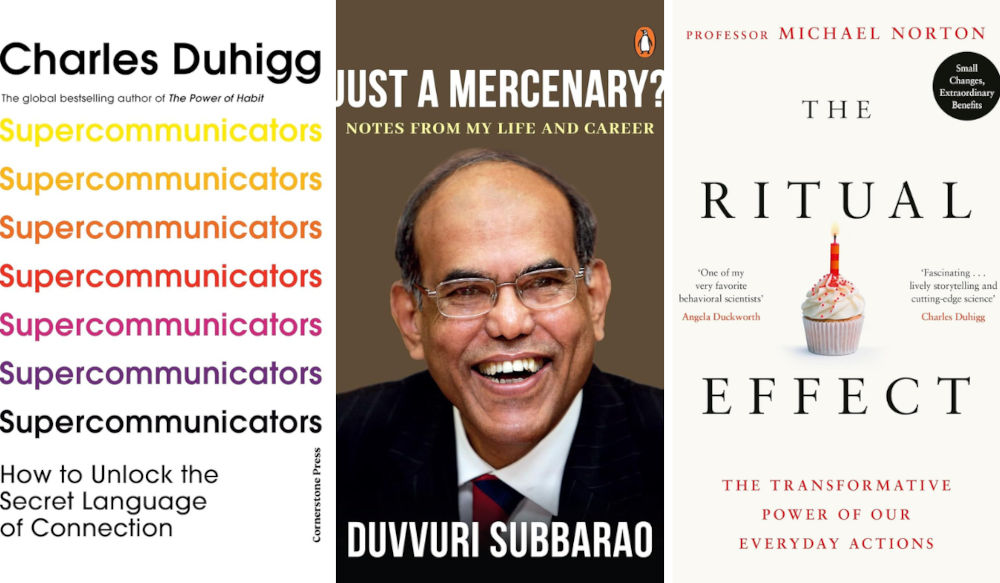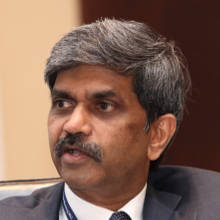This year has seen many more business books than ever before, and my choice ranges from being your best to artificial intelligence. Here are my top 6 books in no particular order:
1.Dialed In by Dana Sinclair
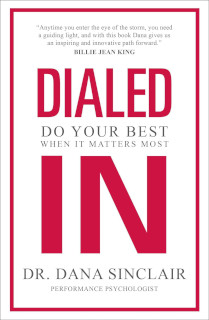
Coaches are everywhere in corporate India, and most are ineffective and talk from their narrow career. Dr Dana Sinclair is a performance coach, and she distils her 20 years of coaching superstars in every discipline into this book. I loved this book. The key to being better is Character — a big lesson from the book.
2. The Ritual Effect by Michael Norton
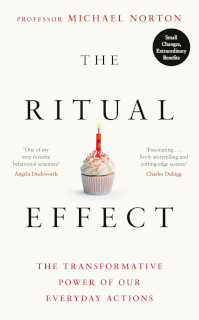
Everyday actions have the power to transform us. Rituals are something we perform without thinking deeply about it. Rituals and superstitions seem intertwined in sports, e.g. Serena Williams bouncing the ball five times before a serve or Rafael Nadal tugging at his underpants. Harvard psychologist Michael Norton analyses rituals and tells us how they can be used to build better teams.
3. Leadership from Bad to Worse by Barbara Kellerman
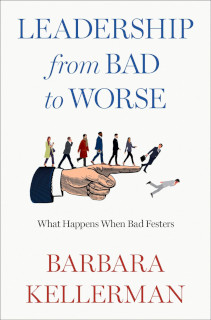
This is one of the finest books I have read on leadership and followership. Oftentimes bad leaders flourish because of bad followers who give them an explicit thumbs up or silence that is perceived as a license. Professor Kellerman discusses leadership from Trump, Putin, Erdogan, Xi. She argues that leaders don’t become bad overnight — the tendencies or characteristics were on display even at an early age.
4. Just a Mercenary? by D Subbarao
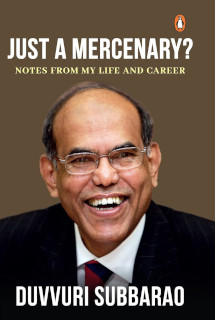
Dr D. Subbarao has a storied career with the IAS and has done a variety of things in his life. A district collector in Khammam, Andhra Pradesh, a finance secretary, chief economist with the World Bank, the 22nd governor of the Reserve Bank of India and a professor. He outlines his journey and the choices he made at every stage. This book teaches us the basics of economics at a grassroots level in India while also telling us how the helicopter view of economics works at a country level.
5. Adapt by Harit Nagpal
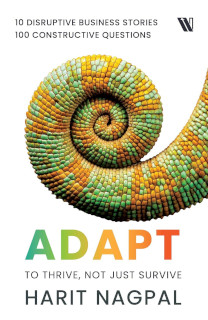
Survival no longer guarantees anything. That simply means legacy without adapting is the recipe for Chapter 11. One needs to adapt and thrive. Harit Nagpal discusses through ten examples, what it means to be innovative, to be collaborative. He looks at adaptation and how individuals and companies can benefit from adapting.
6. Super Communicators by Charles Duhigg
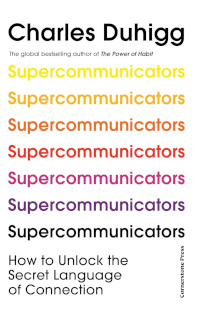
We are super communicating today — talking, listening, social media broadcast, etc. However, very few people can steer a conversation to the outcome they seek or want. Charles Duhigg goes through huge research to distil for us the science of communication. Super communicators can talk about difficult topics with ease, they make others feel comfortable in their presence and they facilitate discussions smoothly. Communication will be one of the super skills to have this decade.
Editor’s Note: We are planning a live conversation between Shivakumar, Dr D. Subbarao, Harit Nagpal and Dr Dana Sinclair. We will announce the date shortly, and inform about the registrations via our daily newsletter. We will also publish extracts from the books by the three authors, ahead of the live conversation.
More in this series
- The Gist: Why being process-driven trumps being results-oriented: Insights on high-performance, distilled from Dr Dana Sinclair’s latest book
- An extract from Dr Dana Sinclair's book, Dialed In, on the red flags in your team
- An extract from Harit Nagpal's book, ‘Adapt: To Thrive, Not Just Survive’ on how the new CEO of an AC company that ranked fourth in a market of six big players, found a sustainable differentiator
- An extract from former RBI governor Dr D Subbarao’s book, ‘Just a Mercenary?’ on the central bank's independence
